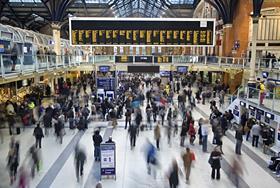Government sets out its plan for how Great British Railways will work
Rail Business UK looks at the details of the government’s rail reform plans, which would restructure the industry and establish Great British Railways as a new body bringing together infrastructure and operations in the biggest shake-up of the sector since privatisation.
UK: The government has launched consultation for a planned Railways Bill which Secretary of State for Transport Heidi Alexander said would implement a ‘once-in-a-generation overhaul of the fundamental rules, structures, and bodies that make up our rail industry’.
This ‘landmark’ reform would ‘sweep away decades of failure, creating a Great British Railways [that] passengers can rely on’, Alexander said when the eight-week consultation period was launched with the publication of A Railway Fit For Britain’s Future on February 18.
Described by government sources as the most substantial piece of rail-focused legislation to come before parliament since the Railways Act of 1993, the bill is expected to be introduced this summer and come into law in 2026.
It follows from the Passenger Railway Services (Public Ownership) Act which received royal assent in November 2024 as a relatively simply piece of legislation that could be passed quickly to stop the award of passenger train operating contracts to the private sector.
Great British Railways
The planned primary legislation would establish Great British Railways as a ‘directing mind’ bringing together infrastructure and passenger operating activities currently provided by organisations including Network Rail, train operating companies, the Rail Delivery Group, the Department for Transport and DfT’s in-house operators.
GBR would be created out of Network Rail Infrastructure Ltd, to simplify the transfers of assets, people and contracts. It would unite track and train ‘at a route level’ with integrated management and passengers travelling on GBR trains, running on GBR tracks to a GBR timetable.
Critical functions currently provided by the Rail Delivery Group will be integrated into GBR.
DfT will also evolve, stepping back from day-to-day…



Comments are closed, but trackbacks and pingbacks are open.